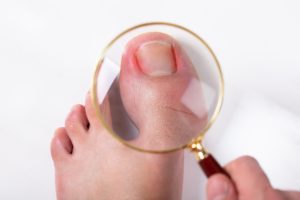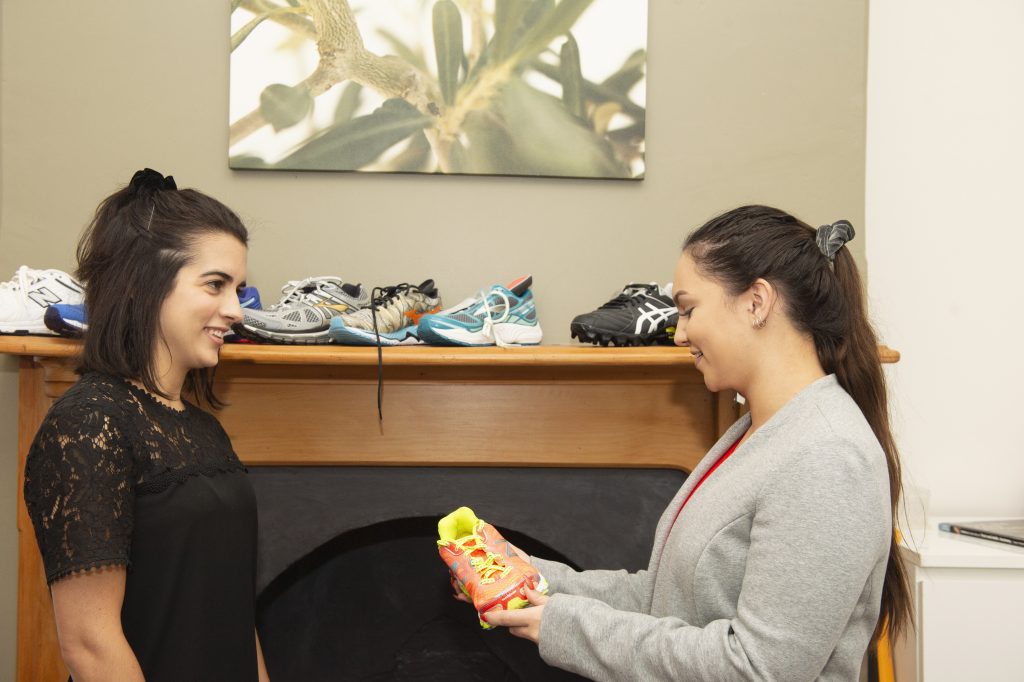What is Onychomycosis? Onychomycosis (Nail fungus) is one of the most common nail infections globally, accounting for up to 90% of all toenail infections. Nail fungus is most commonly caused by fungal organisms, including Dermatophytes, non-dermatophyte moulds and yeasts,...
What is Onychomycosis?
Onychomycosis (Nail fungus) is one of the most common nail infections globally, accounting for up to 90% of all toenail infections. Nail fungus is most commonly caused by fungal organisms, including Dermatophytes, non-dermatophyte moulds and yeasts, which affect your toenails by causing; brittleness, nail plate damage, thickened nails, discolouration (including nail streaking) and odour.
How is Nail Fungus Contracted?
Nail Fungus is generally spread through direct contact with fungal spores. Fungal spores enter through damaged or lifted nail plates and begin proliferating and colonising, often spreading to other nails. Fungal spores spread in various ways, such as shared spaces such as public pools, poor foot hygiene (not changing socks), and excessive sweating of the feet. Fungal nails are also commonly seen in co-occurrence with tinea pedis (a fungal infection of the skin), commonly spread to the nails through itching the infected area using the toenail.

How is Onychomycosis Treated?
Pharmacotherapy
A topical antifungal nail ointment or spray can be used in conjunction with good foot hygiene practices (changing socks twice daily and using an antifungal detergent). Oral medication can be used for more severe cases of infection or in the case of persistent nail fungus. Combination of topical and oral therapy (gold standard).Important notes to consider: A liver function test is needed to proceed with oral treatment of nail fungus. A high level of compliance is needed for maximum results. Topical medication should be used up to two weeks after symptoms have stopped.
Environmental Factors
Changing socks twice daily Use of an antifungal detergent High compliance with oral and topical therapy Bleaching shower floors Getting carpets cleaned Cleaning shoes (Glen 20 + antifungal shower wash)See Your Podiatrist
While fungal nails can be relatively non-urgent, they can mimic other more serious conditions such as psoriasis, changes in nail colour due to medication or other systemic pathology. If you have any nail concerns, book an appointment with one of our experienced podiatrists today.
The post Fungal Nails (Onychomycosis) appeared first on Southwest Foot and Ankle Centre.











